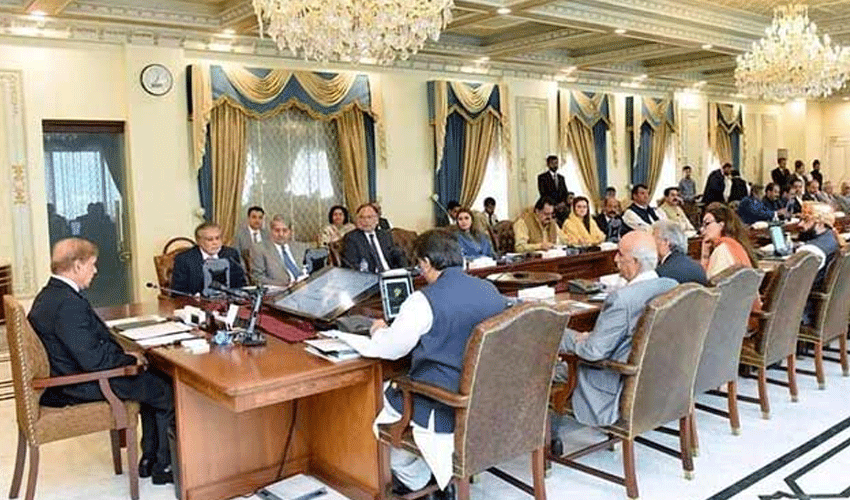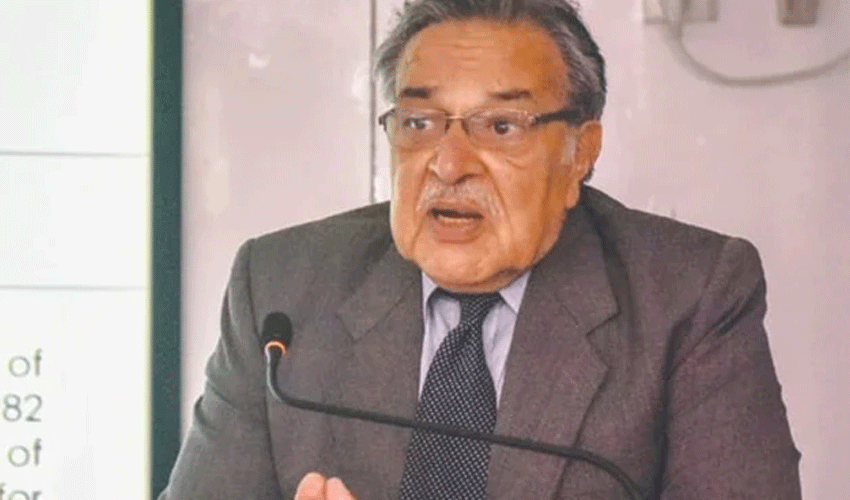Prime Minister Shehbaz Sharif has expressed satisfaction over Pakistan’s staff-level agreement with the International Monetary Fund (IMF), calling it a sign of confidence in the country’s economic stability.
During a federal cabinet meeting chaired by the premier on Wednesday, Shehbaz congratulated Finance Minister Muhammad Aurangzeb and the government’s economic team for successfully securing the next tranche of the IMF loan program. He highlighted that the agreement would provide $1 billion from the $7 billion Extended Fund Facility (EFF) and an additional $1.3 billion for climate financing.
The PM emphasized that the IMF has acknowledged Pakistan’s progress in restoring macroeconomic stability over the past 18 months. He noted that inflation has dropped to its lowest level since 2015, while economic reforms and governance improvements have been praised by the global lender.
Key decisions
The federal cabinet approved several significant measures to strengthen the economy, including:
Solar Net Metering Regulations: The government decided to expand the scope of consultation on solar net metering regulations. Stakeholders will be consulted further before the final recommendations are presented to the cabinet.
Reduction in Electricity Prices: The cabinet approved using savings from reduced petroleum product prices to lower electricity costs, providing relief to consumers.
The meeting also approved in principle the Whistleblower Protection and Vigilance Commission Act, 2025.
Tax Reforms & Incentives: The meeting approved amendments in income tax, sales tax on services, and federal excise duties for Islamabad. The cabinet also greenlit the Income Tax Amendment Bill 2025, restoring tax rebates for full-time teachers and researchers.
Power Sector Agreements: The Central Power Purchasing Agency (CPPA) was given approval to sign revised agreements with power plants operating on bagasse, an eco-friendly fuel derived from sugarcane waste. It was further decided that the agreements with power plants running on bagasse will be made under revised terms.
Privatization & Economic Reforms: The cabinet ratified decisions made in the Cabinet Committee on Privatization (CCOP) meeting on March 11 and the Economic Coordination Committee (ECC) meetings held on March 13 and 21.
Economic stability, long-term growth
Prime Minister Shehbaz Sharif reassured that the government is prioritizing tax reforms and energy sector improvements to sustain economic growth. He reiterated that agreements with the IMF will help stabilize the economy and pave the way for long-term recovery.
He also stated that the country was committed to economic stability, effective performance and sustainable planning.
Addressing the meeting, Prime Minister Shehbaz Sharif expressed gratitude to Chief of Army Staff (COAS) General Asim Munir for his role in securing the staff-level agreement with the International Monetary Fund (IMF).
Speaking during a federal cabinet meeting, the premier acknowledged the contributions of Finance Minister Muhammad Aurangzeb, the finance secretary, Deputy Prime Minister Ishaq Dar, and Minister for Planning Ahsan Iqbal -- who is currently observing Aitekaf in Madina.
He emphasised that the army chief played a crucial role in the negotiations, ensuring Pakistan met the IMF’s conditions swiftly. The premier also extended condolences on behalf of the cabinet to General Munir over the passing of his mother, praying for her eternal peace.
IMF agreement and economic reforms
PM Shehbaz announced that Pakistan had successfully secured a $2.3 billion financial package from the IMF, including a $1.3 billion climate resilience program under the Resilience and Sustainability Facility (RSF).
This raises the total IMF package from $7 billion to $8.3 billion, demonstrating Pakistan’s commitment to economic reforms.
Shehbaz Sharif addressed criticism from the opposition regarding the agreement, rejecting claims of an impending mini-budget.
Also Read: IMF, Pakistan finalise staff-level deal for $2.3bn funding
He stated that tough economic decisions were necessary to stabilize the country, adding that provinces also played a pivotal role in implementing reforms, particularly the passage of the agricultural tax, which was first approved by Punjab and later adopted by other provinces.
He highlighted Pakistan’s record-breaking tax collection, noting that revenue collection increased by 26% last year, surpassing IMF targets. He revealed that the tax-to-GDP ratio, previously at 9%, had now risen to 10%, with the goal of reaching 12.9 trillion rupees this year.
Challenges of inflation, terrorism, and economic reforms
PM Shehbaz acknowledged the hardships faced by the people, stating that inflation and terrorism remain major challenges in two provinces.
He emphasised that economic recovery requires peace and stability, vowing to continue efforts to counter terrorism.
He also discussed government initiatives, including the digitization of the Federal Board of Revenue (FBR) and the establishment of professional tribunals to ensure transparency in tax collection.
He lauded the new taxation mechanism, which helped collect a record Rs 34 billion in revenue, while efforts to curb tax evasion in the sugar sector yielded an additional Rs12 billion in just three months.
The Prime Minister stressed the need for a new economic mindset, stating, “Nations are built by contributions, not by taking loans.” He criticized lavish expenditures abroad while avoiding taxes at home, calling for a culture of financial responsibility.
Shehbaz Sharif also mentioned the success of the Ramadan Digital Wallet, which disbursed Rs 20 billion, with 60% of funds already utilized to support underprivileged families.
He concluded his address by invoking the legacy of Zulfikar Ali Bhutto, recalling his contributions to Pakistan’s nuclear program. The PM reaffirmed his government’s commitment to economic stability and national security, stressing that sacrifices are necessary to achieve sustainable progress.


























